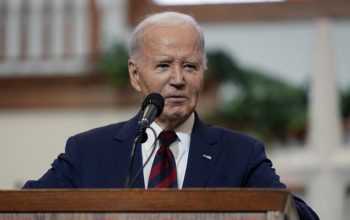news
Ambassador of El Salvador Discusses His Government’s Critical Role in Achieving Peace, Gender Parity and Social Development
July 17, 2013
Earlier in July, Global Foundation for Democracy and Development was very pleased to welcome Carlos Enrique García González, Ambassador of El Salvador to the United Nations.
GFDD’s Executive Director, Natasha Despotovic, introduced Ambassador Carlos Garcia, who has been the Permanent Representative of El Salvador to the United Nations since February 1st, 2013, but he is a career diplomat that had served his country in the UN since 1996.
Natasha Despotovic and Carlos Enrique García González
Ambassador Garcia started the conversation explaining the important role played by the 2 million Salvadorians living in the United States and periodically sending money back home. These remittances account for 17% of the country’s GDP, a very important source of revenue. It is a fact well known in the
Dominican Republic, and to make a comparison, 35 millions of dollars were sent by the Dominican Diaspora to the DR in 2011.
As the current Vice-Chairman of the Commission for Social Development and the Commission on the Status of Women, Mr. Garcia introduced to our audience the renowned project “Ciudad Mujer”, one of his country’s solutions to implement equal gender policies.
Each week, about six thousand women from El
Salvador report violence, physical and psychological abuse, sexual harassment in public and private offices, factories, universities and schools. Six thousand women report lower salaries in relation to the ones men earn for the same job, child support that is not received, etc. Never before had the authorities and State institutions taken into account this reality.
But something is beginning to change deeply in El Salvador, a country infamous for its insecurity and
violence. The successful project of “Ciudad Mujer’’ is a perfect example. These Comprehensive Attention Centers provide services that can be seen as being practical and directly related to women’s human rights condition (health, nutrition, etc.) as well as services related to their gender condition (job training, skills, time constrains, etc.).
Mr. Garcia also talked about the new “peace zones” that have been
appearing in El Salvador since January. These five peace zones correspond to five towns where, thanks to governmental policies and negotiations, the local maras have pledged to put an end to its murders and extortion.
Economically speaking, however, the Ambassador continued that the country is in a stable position. The Ambassador explained how
considering it is a small country, prone to volcanic activity and destructive earthquakes, it has nevertheless managed to build the third largest economy in the region and has kept it progressing steadily.
About the Global Roundtable
The
regular series, GFDD Global Roundtable is also a part of GFDD’s program to support the work of the United Nations and, as a non-governmental institution affiliated to it, contribute to the visibility and understanding of its work.
About Ambassador Carlos Enrique García González.
Mr. Carlos Garcia has been in charge of the economic, financial, social, peace and security, peace building, humanitarian, environmental
and human rights issues during his post in New York.
Ambassador Carlos Garcia is currently Vice-Chairman of the Commission for Social Development 2013-2014; Vice-Chairman of the Commission on the Status of Women 2012-2013, Vice Chair for CSW 2013-2014, and served as Vice-President of the Executive Board of UNDP-UNFPA UNOPS in 2011. He also had served as Vice-Chairman of the Second Committee during the 64º session of the General Assembly; Vice-Chairman of the Third
Committee during the 56th and 59th sessions of the General Assembly; Vice-Chairman of the former Executive Board of INSTRAW 2004-2006 and as Rapporteur of the Joint Executive Boards field visits to Guatemala (2004) and Azerbaijan (2005).
Prior to joining the Permanent Mission of El Salvador to the United Nations, he worked as Director of Multilateral Affairs (1996) and Chief of the Caribbean Affairs (1991-1995) at the Ministry of Foreign Affair of El
Salvador. He holds a Special Course’s degree in International Relations from the Diplomatic Academy of Madrid (Spain) and a bachelor’s degree in International Relations from the University of El Salvador.
Transcript of Global Roundtable with Carlos Enrique García González







